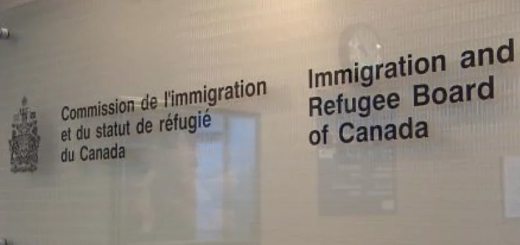The Charkaoui Decision, International Human Rights, and Canadian National Self-Image: A Blow to “Security Relativism”?*
The Supreme Court of Canada’s (“SCC”) decision in Charkaoui v Canada (Citizenship and Immigration), 2007 SCC 9, is notable not just for its depth, but also for the range of issues that it considers and deals with. Its main conclusion is, of course, that portions of the Canadian Immigration and Refugee Protection Act, SC 2001, c 27, relating to the joint issuance and utilization of “security certificates” by the Ministers of Immigration and Public Security – chiefly as an anti-terrorism resource – are unconstitutional, and that some relevant characteristics of that regime should be sustained as lawful.
On the bright side (and this is the side of the decision that predominates), Charkaoui is notable for declaring unconstitutional the full or partial use of secret evidence in the judicial determination of the reasonableness of the said certificates; and for determining as unlawful the lack of a sufficiently timely review of the validity and appropriateness of the mandatory detention that is the lot of any non-permanent resident foreign national (including an accepted refugee) against whom such a certificate has been issued.
Prior to Charkaoui, permanent resident non-citizens enjoyed much more favorable legal treatment than their non-permanent resident counterparts in this latter connection. Charkaoui is also noteworthy for its fairly explicit denunciation of the possibility of the indefinite detention (without meaningful opportunities for review) of non-citizens who are suspected of posing security threats to Canada. But as much other commentary has been and will continue to be directed at the nature and valency of each of these conclusions, they are not the main focus of the present commentary. Rather, certain other significant aspects and implications of the decision are highlighted.
The first is that in coming to all of the afore-mentioned conclusions, the court took heed of relevant developments in some other lands; firmly placed itself on the side of the more progressive constitutional courts in comparable English-speaking jurisdictions; aligned itself with more humanist practice in this socio-legal sphere; and thus delivered a judgment that ranks “up there” with cases such as the much celebrated A v Secretary of State for the Home Department, [2004] UKHL 56 (the British decision on the illegality of indefinite detention of terrorist suspects); and Zadvydas v Davis, 533 US 678 (2001) (the US Supreme Court decision on a similar question).
In terms of the depth of consideration that Charkaoui gave to the practice of some similarly situated jurisdictions, the judgment demonstrates that – much like other branches of the Canadian government – the Supreme Court is keenly aware of Canada’s historical place in the world (however constructed that location may seem). As most students of Canadian citizenship and immigration law/policy will realize, the relevant socio-legal place, and Canada’s lived-in national self-image, is more often than not portrayed as humanitarian, pro-human rights, and anti-despotic: which is why the court declared in at least one key portion of its Charkaoui decision that “The rights protected by s.7…are basic to our conception of a free and democratic society, and hence are not easily overridden by competing social interests” (para 66).
However, this pro-human rights conception of Canadian national self-image was not enough to prod the court in Charkaoui toward a more robust and convincing deployment of internationalist legal norms/discourse (in this case, international human rights law) in order to enrich – and perhaps even re-orient – its reasoning regarding the question of the existence or otherwise of a right of appeal in cases in which a security certificate has been issued against a non-citizen and has been subsequently declared “reasonable” by a federal court judge.
The court was of the view that:
there is no constitutional right to an appeal [presumably even in criminal cases]… nor can such a right be said to flow from the rule of law in this context. The federal Court is a superior court, not an administrative tribunal. (para 136)
Although there was a certain displacement of international human rights law from the explicit version of the court’s reasoning this decision, this back-grounding of a relevant body of (international) law is most consequential with respect to the question of the existence of a right of appeal. In just one paragraph (para 136), the court rejected the argument of one of the appellants, Adil Charkaoui, that the constitutional principle of the rule of law is infringed by… “the unavailability of an appeal of the designated judge’s determination that the [security] certificate is reasonable” (para 133). Although this issue may seem settled to a Canadian constitutional lawyer and does not seem to excite all that much dispute among scholars of the court’s jurisprudence, a more detailed canvassing of the issue – especially in regard to international human rights developments – may just have led the court in a different direction.
For one thing, in international human rights law there is clearly a right of appeal from a criminal conviction (even by a superior court). And although there is no explicit provision in almost all of the major international human rights treaties for a right of appeal in civil causes or in immigration matters, considering that – as the court properly acknowledged – the consequences for a non-citizen of the kind of immigration matter under consideration (i.e. death, torture or the serious deprivation of liberty) could be just as grave as those that may affect a person convicted of an offence, there are at the very least reasonable grounds upon which the court could have devoted more energy, time and space to this question. And this is so despite Canadian case law to the effect that immigration matters are civil, not criminal causes.
As such, the point here is not necessarily that the court should have definitely held that a right of appeal does flow from the principle of rule of law in this context, but that the court’s treatment of this issue would have been much more robust, rich, and convincing had international human rights law not suffered significant displacement from this and most other portions of the decision.
All in all, though, while the court has gone a very long way down the path that leads toward a departure from the much stronger kinds of security relativism that marked (and some say marred) its otherwise commendable decision in Suresh, security relativism still played a significant role in the Supreme Court’s reasoning process – albeit in a milder and more understandable way. As such, although the SCC has declared indefinite detentions without meaningful review illegal, in the name of security it has still left open the possibility of lawful detention that lasts for significantly extended periods.
Although the court has declared the use of secret evidence unconstitutional, it has for security reasons still left some room for the lawful concealment of the relevant evidence from the person who is the subject of the proceedings (as opposed to say her/his security-cleared counsel). And while the court did outlaw the lack of a timely review of the validity of the detention of non-permanent resident foreign nationals who are subject to the security certificate process, it did – largely on security grounds – hold that such persons could be subjected to mandatory detention by the executive branch. Thus, what the court refers to in the decision as “the exigencies of the security context” are quite understandably at work all through the decision, circumscribing, constraining, and limiting its logic.
Thus, although much commentary on the decision is celebratory, as it should be, we must not forget that while security relativism (a faithful servant of despot and democrat alike) seems to be either dead or dying at the Supreme Court, there is still some cause among the more historically savvy observers of that institution to give a cheer and exclaim: security relativism is dead (in Canadian immigration law)… long live security relativism.
______________________
* This concept was developed in O.C. Okafor and P.L. Okoronkwo, “Re-Configuring Non-Refoulement? The Suresh Decision, ‘Security Relativis’, and the International Human Rights Imperative” (2003) 15 International Journal of Refugee Law 30.







Join the conversation